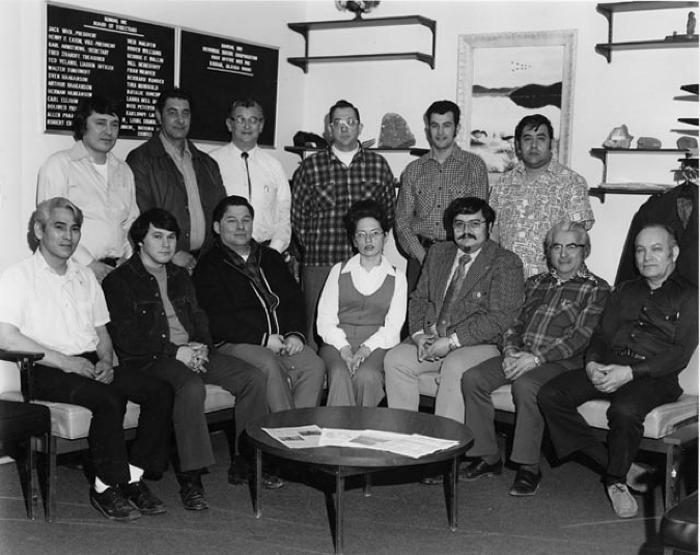Corporation — Akilingnaq’sqat

Forty years ago, the Alaska Native Claims Settlement Act returned forty-four million acres of land and 962.5 million dollars to Alaska’s Native people. Known by its acronym ANCSA, this historic piece of federal legislation represented a turning point in the social history of Alaska. ANCSA symbolized the reassertion of Native control over Native affairs. The decades following the act have been marked by increasing involvement of Native people in Alaska business and government as well as a resurgence of pride in Native ancestry.
ANCSA divided Alaska into twelve regions and established a thirteenth region to represent Alaska Natives living outside the state. These regions were meant to broadly mirror the state’s cultural areas, although creating boundaries was not easy. For example, ANCSA divided the Alutiiq people into four different regions: Kodiak, Prince William Sound, Cook Inlet, and Bristol Bay.
To receive shares of the settlement, the people of each region had to form regional for-profit corporations. These corporations were given four major tasks. First, they were to receive cash settlements to manage and invest for their enrollees. Second, they were to become owners of the lands conveyed under ANCSA. Third, they were to assist communities in their region with the formation of village corporations. These smaller corporations were to receive and manage cash and lands from the settlement and further distribute it to individual shareholders. Finally, each regional corporation had to run at least one additional for-profit business.
The Kodiak Alutiiq word for corporation—akisuangnaq’sqat in the northern way of speaking or akilngnaq’sqat in the southern way of speaking—reflects one of the central roles that ANCSA assigned to Alaska Native corporations. These words literally mean “ones that try to make money.”
